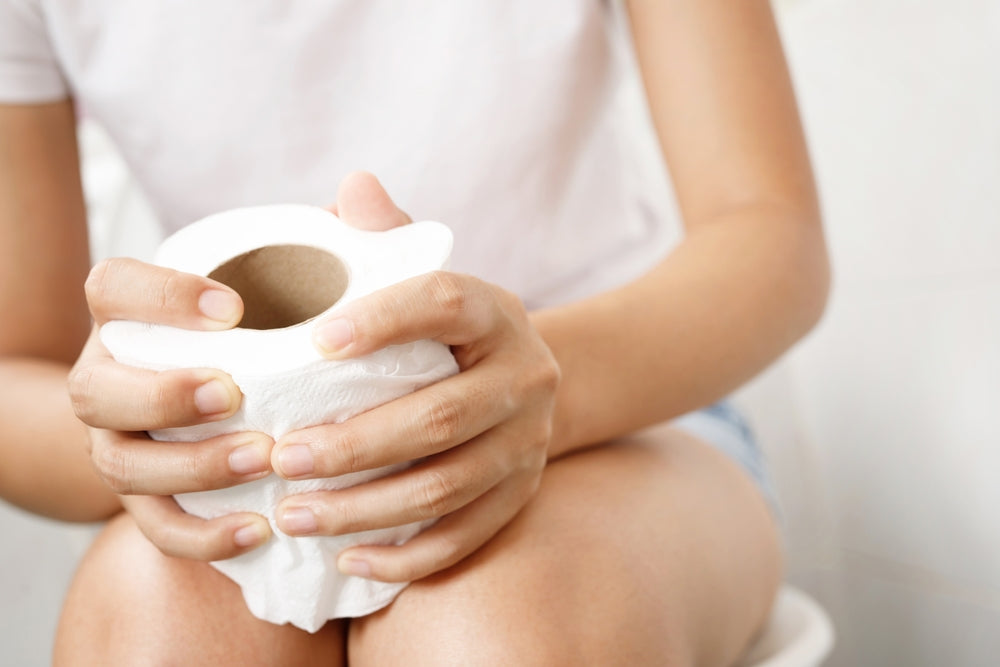The word constipation is often used to refer to any difficult stool but medically, constipation is when a person is having less than three bowel movements a week. When somebody is experiencing constipation, stools are usually hard, dry, difficult to pass and infrequent. As anyone who has experienced constipation first-hand will know, constipation is not only a health concern but it’s also very uncomfortable. You may find yourself spending a long time sitting on the toilet trying to pass stool.
Constipation SymptomsThough the medical recognition of constipation is passing stool less than three times a week, everyone is different. You are most likely constipated if you are seeing a notable reduction in the frequency of passing stools accompanied by the following symptoms:
- Straining on the toilet
- Experiencing pain when passing stools
- Feeling that there is stool left even though you’ve just passed some stool
- Passing hard or lumpy stools
- Bloating and abdominal discomfort
Constipation is surprisingly common, affecting 1 in 5 Australians. It is usually temporary but it can be an ongoing or chronic health problem in some cases. The most common causes of constipation are changes in your daily routine, low fibre diet, insufficient hydration, lack of exercise, pregnancy and certain medication or medical conditions.
Routine ChangesBowel movements are linked to the body’s internal clock known as the circadian rhythm. The circadian rhythm can be disrupted by changes to sleep patterns, exposure to light, meal times and stress. Circadian rhythm disruption can in turn disrupt normal bowel movements. Constipation is therefore common during periods of extreme disruption (e.g. shift work, overseas travel or times of emotional upheaval) to the body’s normal routine.
Low-fibre DietSoluble fibre, which is found in legumes, fruits and vegetables helps soften faeces. While insoluble fibre, which is commonly found in whole-grain bread and cereals adds bulk to the faeces, allowing it to be pushed through the digestive tract more easily. A diet that is low in fibre can lead to dry faeces that are difficult to pass, which ultimately contributes to constipation.
Lack of Water
Water works synergistically with fibre as it is absorbed by the fibre in the bowels, which helps soften and bulk up the faeces. Consuming a high-fibre diet alone may not be sufficient enough to counteract constipation. You’ll need to ensure you’re drinking plenty of water to feel the full benefit of the fibre.
Lack of Exercise
If you’re not moving your body regularly, it will take longer for your body to move your food through the large intestine. This causes your body to absorb more water from the stool, leaving you with hard dry stools. Exercise also works to increase your breathing and heart rate, which stimulates the contractions of the muscles in your intestines and helps you pass stools more effectively.
Medication
Certain medications can make your body more prone to constipation. Some medications reduce the efficacy of the muscles in your gut, making it more difficult to pass stools through your digestive system. While others can cause dehydration, which can lead to dry hard stools. Medications that have been linked to constipation include antidepressants, iron supplements, calcium-channel blockers and non-magnesium antacids.
Pregnancy
Pregnant women are more susceptible to constipation due to very high levels of progesterone. Progesterone relaxes your intestines meaning that the muscles don’t contract as effectively, which makes it harder to pass stools. Towards the end of the pregnancy, the pressure of the growing uterus can further inhibit the intestines' function.
Medical Conditions
Constipation can sometimes be a symptom of a more serious medical condition affecting either the bowel, digestive tract, rectum or anus. The potential serious medical condition inhibiting stool passing include:
- Anal fissure - A tear in the skin inside the anus that can cause significant pain when passing stools, which leads to constipation
- Haemorrhoids - These can cause physical obstruction of the rectum or anus, making it more difficult to pass stools
- Hernia - A hernia in the abdomen can make it painful to pass a stool
- Irritable Bowel Syndrome - A disorder affecting the large intestine that can cause constipation as well as cramping and abdominal pain
Constipation is a common health issue that can be caused by a number of factors. While making simple lifestyle changes like incorporating more high-fibre foods, drinking more water and exercising can help alleviate constipation, sometimes you need a little extra help. That’s where Overnight Cleanse comes in. Our colon cleanse pills only contain gentle all-natural ingredients that encourage healthy pain-free bowel movements.
Note: If you’re suffering from a long-term or chronic illness, or if you’re unsure if Overnight Cleanse is suitable for you, please speak to a medical professional before commencing treatment.

